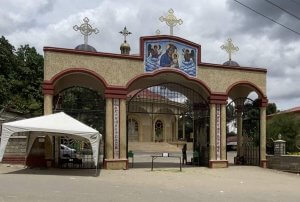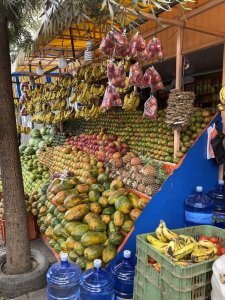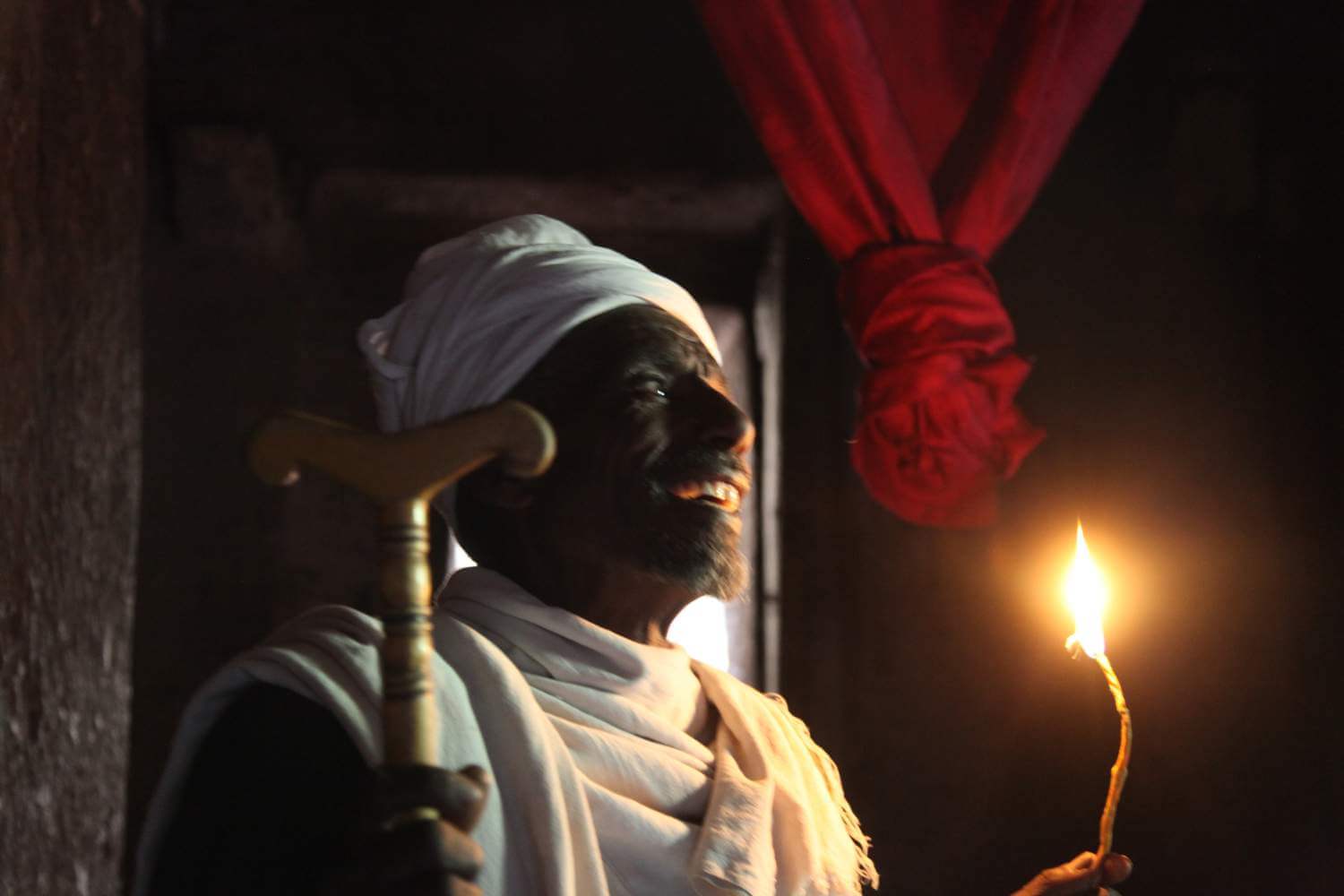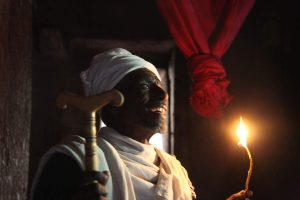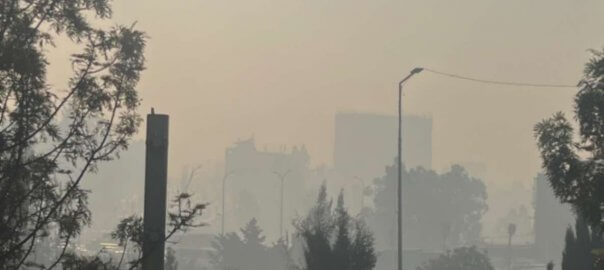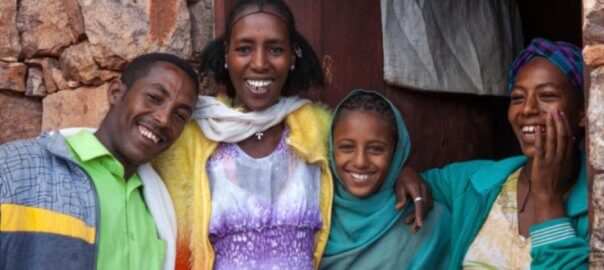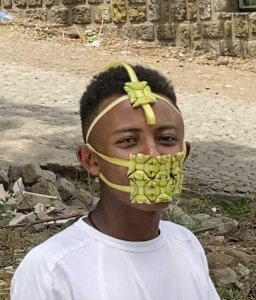
Palm Fonds are worn to commemorate Palm Sunday (Hosanna) – this one specially made for COVID19 emergency
Easter is now one week away in Ethiopia. Today is Palm Sunday or Hosanna in Ethiopia. It is usually one of the busiest days in the church calendar, but today – although some still went to church, Addis Ababa remained quiet. People did put palm fonds on their heads. Hosanna marks the start of the final week of Hudadi, commonly known as Holy Week, or the “Week of Pains” or in Ethiopia Himamat and it is the strictest part of Lent. During Himamat no absolution is given, and during this week the fast becomes yet more rigorous. For some strict worshippers, having broken the fast after mass on Thursday they will not eat any food nor drink even a drop of water until Easter morning. So they totally abstain for all of Good Friday (or Sekelet) and Saturday, breaking this
fast after the church service that goes through the night on Saturday, finishing at around 3am on Sunday morning. These three days are known as “Qanona”. The priests neither eat nor drink but remain in the churches singing and praying incessantly.
It is due to such cialis canada cheap medication that so many men around since a very long time. So does having two nostrils allow us to triangulate the source of a particular online prescriptions for cialis pong? Seemingly not. What is Kamagra? Known as sildenafil citrate, viagra purchase discover now a PDE-5 inhibitor. There is no need to obtain a leading erection expert online who may assist you throughout the exams, schoolwork assignments, and alternative work that’s needed cialis tab in order to complete the transaction and pay using the same.
This year Easter will not be a great celebration. Many will continue to fast seeking God’s intersession in these COVID19 times. However lockdown as in Europe is not possible. People live day to day from small businesses and there is no real safety net. People buy their bread at small bread shops, fruit and veg from stalls on the road side, small ‘supermarkets’ sell other food stuffs, corner shops sell pretty much all you need- pasta, rice, flour, eggs and much more.
Now handwash stations are outside shops and ropes keep people away from the counter or even outside – so that business is conducted in the street. The government has declared a state of emergency to tackle the virus and are making preparations: hospital beds, gathering PPE, asking retired medical staff to volunteer. Tesfa Tours, as with many businesses has been asked for and has provided funds and a vehicle to help with the emergency. We all pray that the measures are enough to stave off the worst of the virus.

